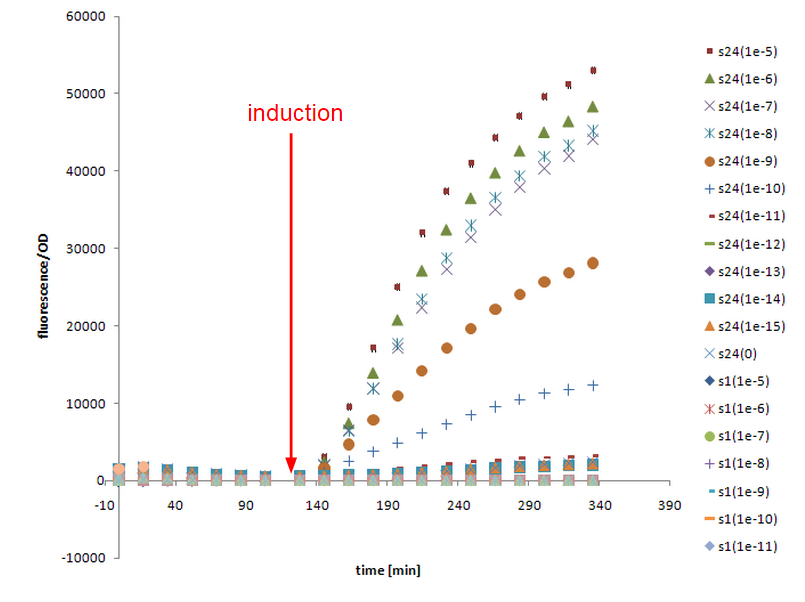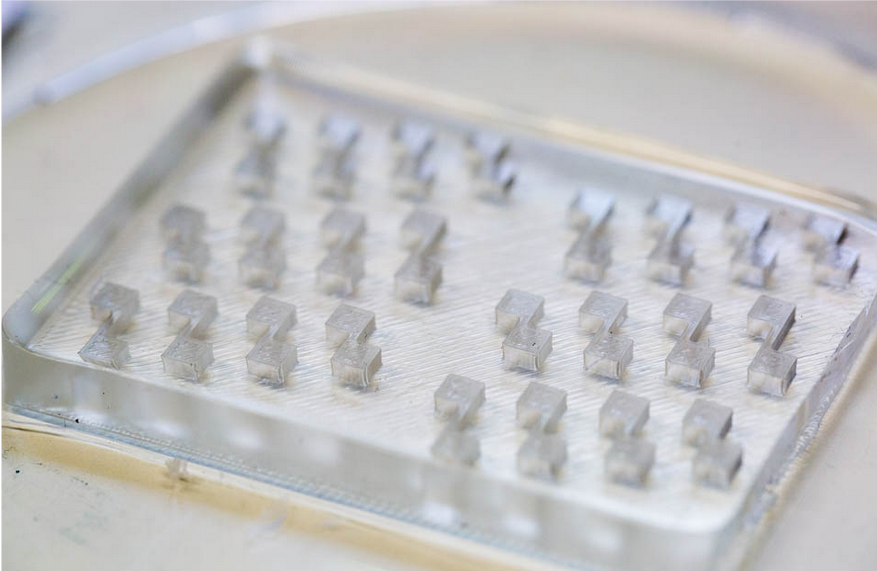Team:ETH Zurich/labblog/20140806meet
From 2014.igem.org
(Difference between revisions)
(→Wednesday, August 6th) |
(→Wednesday, August 6th) |
||
| Line 9: | Line 9: | ||
[[File:ETH Zurich Quorum1.PNG|center|600px|thumb|Fluorescence under control of wildtype lux sensor (s24) over time for different concentrations of AHL. Check <html> <a class="all" href="https://2014.igem.org/Team:ETH_Zurich/blog#cross-talk"> the corresponding article </a></html> for more information]] | [[File:ETH Zurich Quorum1.PNG|center|600px|thumb|Fluorescence under control of wildtype lux sensor (s24) over time for different concentrations of AHL. Check <html> <a class="all" href="https://2014.igem.org/Team:ETH_Zurich/blog#cross-talk"> the corresponding article </a></html> for more information]] | ||
* We have now a proper PDMS chip for diffusion experiments : | * We have now a proper PDMS chip for diffusion experiments : | ||
| - | [[File:ETH Zurich Pdms1.PNG|500px]] | + | [[File:ETH Zurich Pdms1.PNG|center|500px|Our millifluidic chip for diffusion experiments]] |
*We have a simple GFP production model for simulation of these quorum sensing experiments, by using quasi steady state aproximations (considering that binding is much faster than transcription and diffusion) : | *We have a simple GFP production model for simulation of these quorum sensing experiments, by using quasi steady state aproximations (considering that binding is much faster than transcription and diffusion) : | ||
[[File:ETH Zurich Model1.PNG|600px]] | [[File:ETH Zurich Model1.PNG|600px]] | ||
Revision as of 12:37, 1 September 2014
Week 11
Wednesday, August 6th
- We have a first draft of our abstract.
- We performed double transformations with different combinations of regulator + sensor plasmids for cross-talk experiments. We have results for our first quorum sensing experiment : fluorescence under control of wildtype lux sensor (s24) over time for different concentrations of AHL. s1 is a negative control.

Fluorescence under control of wildtype lux sensor (s24) over time for different concentrations of AHL. Check the corresponding article for more information
- We have now a proper PDMS chip for diffusion experiments :
- We have a simple GFP production model for simulation of these quorum sensing experiments, by using quasi steady state aproximations (considering that binding is much faster than transcription and diffusion) :
By using producer cells on one side of the channel and receiver cells in the other side, and putting cells in a punched cylinder in agar, we should see fluorescence appear at different times depending on the channel length (1 to 4mm) :
- In the next weeks we will fit quorum sensing parameters thanks to the first quorum sensing experiments and our simple GFP production model, refine this Comsol diffusion model with the right quorum sensing parameters and then fit this diffusion model to diffusion experiments to find the diffusion constant.
 "
"


